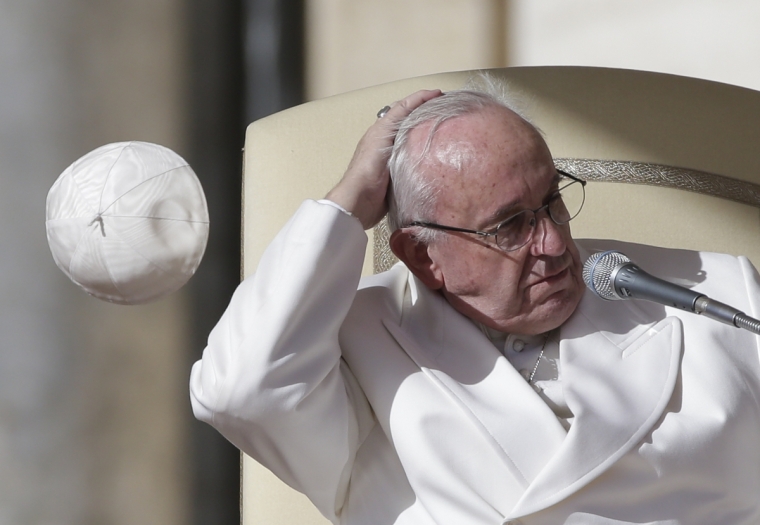Not just care, but 'justice' for the poor says Pope, in talk of redistribution of wealth

VATICAN CITY (Christian Examiner) – Pope Francis said during his general audience in St. Peter's Square on Ash Wednesday that true celebration of the Jubilee year cannot take place unless Christians dig into their wallets to help the poor.
Care for the poor is a biblical concept, the pontiff said, and the Jubilee year was a time in Scripture when all debts were forgiven and land was returned to its original owners. What is likely to turn the heads of critics who have accused the pontiff of promoting Marxism are his words about shared resources and "justice" for the poor – achieved through the liberation of lands and wealth from those with both.
"With the Jubilee, those who had become poor returned to having the necessities of life, and those who had become rich restored to the poor what they had taken from them," the pontiff said. "The goal was a society based on equality and solidarity, where freedom, land and money became once again a good for all and not just for a few, as happens now."
"If I'm not mistaken – the figures are approximate – but more or less 80 per cent of human wealth is in the hands of less than 20 percent of the population. It is a Jubilee year — and I say this remembering our salvation history — for converting, so that our heart may become larger, more generous, more a child of God, with more love," Pope Francis said.
In Leviticus 25, however, the Jubilee year isn't presented as a time of redistribution of land to people to whom it did not belong and never belonged, and the land in discussion was not "taken," as Pope Francis said, but sold.
The complicated system of laws also included a means of compensation for landowners. If land was sold to a different Israelite family than the original owner, the land was to be returned to the original family in the Jubilee year, but not without compensation based on the number of annual crops that could still be harvested from the land.
For example, a field bought three years after a Jubilee would be purchased at the value of 46 years of the annual crop, the time until the next Jubilee. A field bought four decades prior to the Jubilee could be redeemed by the original owner by paying the value of nine years of annual produce, the number of crops remaining in the 49-year-cycle.
Leviticus 5:15-17 describes the practice:
"You are to buy from your own people on the basis of the number of years since the Jubilee. And they are to sell to you on the basis of the number of years left for harvesting crops. When the years are many, you are to increase the price, and when the years are few, you are to decrease the price, because what is really being sold to you is the number of crops."
Land was not, however, given into the hands of those who never owned it. Laws for freeing slaves in the Jubilee also only applied to Israelite slaves. Israelites were not required to free foreign slaves.
Francis told his audience a Jubilee that "does not touch the pocket" is not a true Jubilee. If done as he believes the Bible teaches, the Jubilee will produce "a dignified life to all and an equitable distribution of land on which to live and from which to draw sustenance."
If the same principles are practiced today, the pontiff said, Catholics will create "a world without the poor" by building a society based on "solidarity" and "a distribution of resources founded on brotherhood and justice."